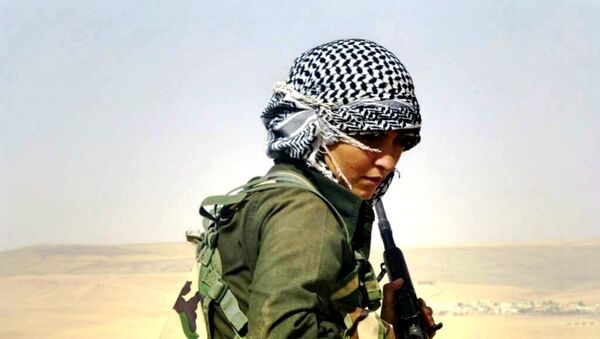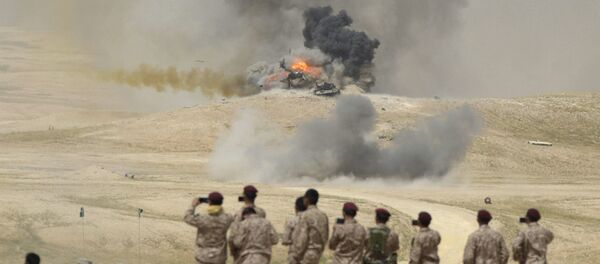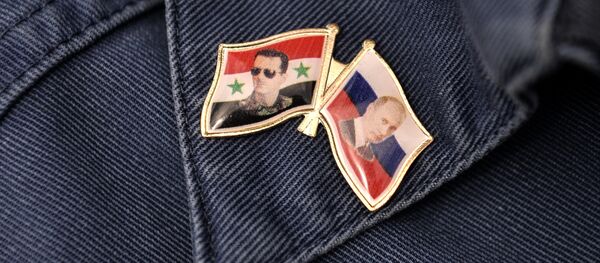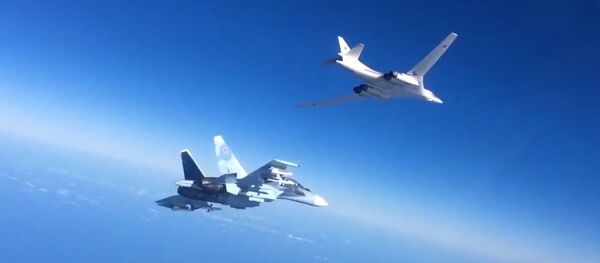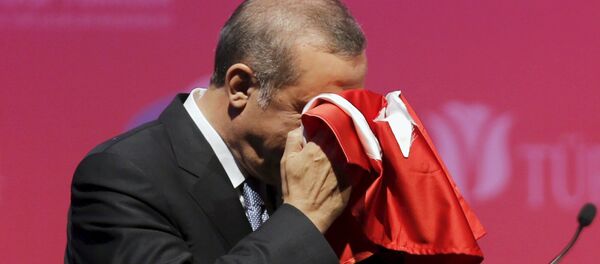According to James Carden, a former advisor to the US-Russia Presidential Commission at the US State Department, the Kurds should not delude themselves into believing that the West will help them meet their aspirations for independence, despite the crucially important role the nation's militias have played in the war against Daesh.
"The message is becoming too clear to ignore: If and when a settlement is reached at the Syria peace talks in Geneva, the Kurds are likely to be swiftly abandoned by their erstwhile US and Western allies," Carden writes in his article for The Nation.
There are signs that the grim prognosis is likely to come true.
"First, Washington exhibits an embarrassing fealty toward Turkish President Recep Tayyip Erdogan, who is waging a brutal war against the Kurds in southeast Turkey, all the while bombing Kurdish positions in northern Syria," the American expert emphasizes.
Indeed, for weeks Ankara has shelled Kurdish People's Protection Units (YPG) militia forces — the US-led coalition's de facto allies — in northern Syria, despite weak protests from Washington.
At the same time, the Erdogan regime continues to crack down on his own Kurdish population.
"Following Sunday's attack, Turkey expanded its crackdown against the PKK [Kurdistan Workers' Party], detaining more than 230 suspects in nationwide raids, and killing more than 60 Kurdish militants during urban clashes in the country's southeast and in airstrikes in northern Iraq," Emre Peker of The Wall Street Journal reports.
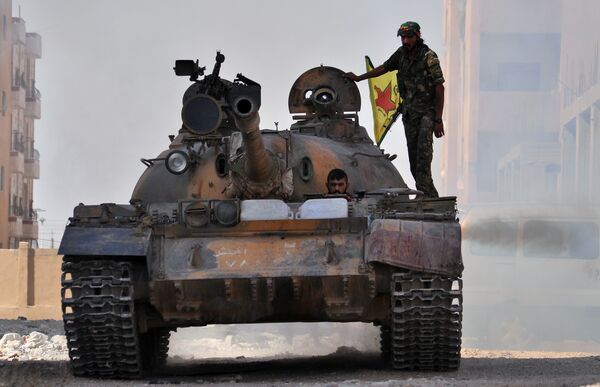
Carden recalls that in late February, the pro-Kurdish opposition People's Democratic Party (HDP) was denounced by Turkish Prime Minister Ahmet Davutoglu for alleged "treason."
"They are collaborating with Russia like the Armenian gangs used to do," Davutoglu said in his official speech, in an apparent sinister reference to the WWI era Armenian genocide, the US expert relayed.
As of yet Washington has failed to firmly condemn Turkey's aggressive foreign and domestic policy aimed against the Kurds.
However, it is not the only sign that the West is likely to abandon its anti-Daesh ally, Carden notes.
The US and NATO member states have recently voiced their discontent over Russo-Kurdish collaboration on the ground in Syria.
"What we have seen over the last weeks is very disturbing evidence of coordination between Syrian Kurdish forces, the Syrian regime and the Russian air force, which are making us distinctly uneasy about the Kurds' role in all of this," UK Foreign Secretary Philip Hammond told the Parliament in late February, as quoted by The Telegraph.
It seems that at that moment Hammond had completely forgotten that Russian, Syrian and Kurdish forces were pursuing the same goal as the US-led coalition — to defeat Daesh.
In particular, in January 2016 former US Ambassador to Syria Robert Ford slammed the Kurdistan Regional Government (KRG) for the alleged forcible displacement of Arab communities in Iraq amid the ongoing war against Daesh.
The allegations look divorced from reality: the Iraqi Kurdish leadership presented ample evidence that such activities have never taken place. Still, the KRG's response has been largely neglected by Western media sources, the US expert notes.
"And this is as good an indication as any that the Kurds shouldn't expect much from Washington and its coalition 'allies' for their pivotal contribution in the war against ISIS [Daesh]," Carden concludes.
